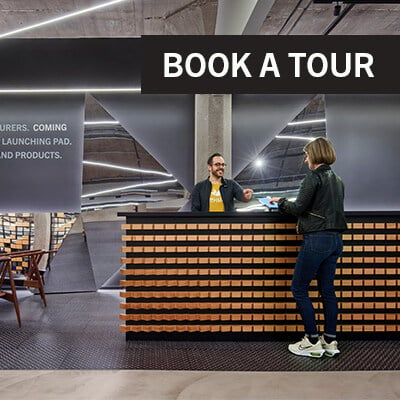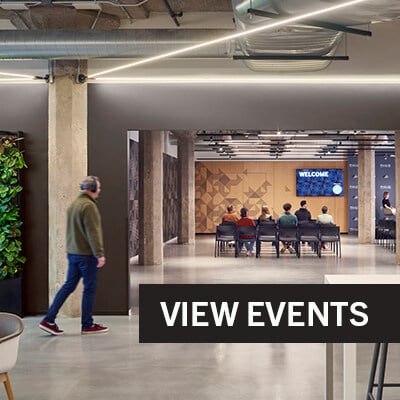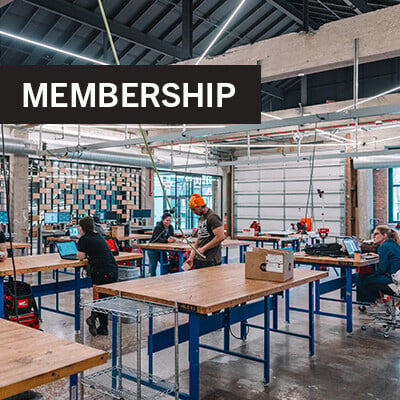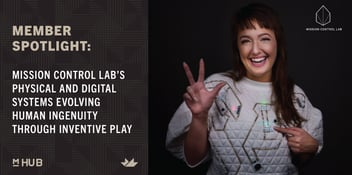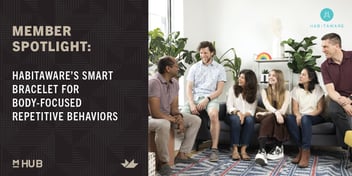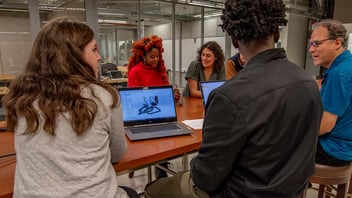The mHUB innovation community consists of a network of over 500 engineers, product designers, and entrepreneurs. The diversity of skill and knowledge make a Hardtech Development team the most qualified you can find for research and development projects.
These innovators work together, physically, to solve problems in an agile manner while engaging a client’s own internal team throughout the process. Access to the prototyping equipment and resources of the mHUB innovation center allows teams to rapidly prototype and engage a broad network of partners and suppliers.
Because mHUB Hardtech Development teams are custom built and project specific, the contractors selected are tailored to specific challenge statements for product development or process improvement. With a unique focus on hardtech and product development, teams serve manufacturers of all sizes.
Projects range from enhancements to existing products to testing markets and hardware for novel ideas and from manufacturing efficiencies to digitization. Here are a few of the talented engineers that you might find on a Hardtech Development team:
Nate Ivy
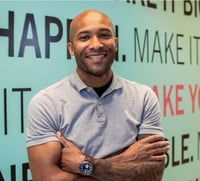
What type of challenge statements do you enjoy the most?
“I like challenges that require a User-Centered Design approach. I also enjoy hardware products that have a digital component, whether that be integrated digital interfaces or accompanying mobile applications.”
How do you apply your technical skills to Hardtech Development projects?
“In every hardtech design I leverage my manufacturing knowledge; that includes designing for prototyping methods, like 3D printing and CNC machining, or more scalable processes, like injection molding.”
What is one past success from a Hardtech Development or professional project that you are proud of?
“One of my most notable achievements in the past was being awarded several patents for a mobile medical device. I worked very closely with a Detroit-based startup to develop a more portable auto-injector for allergy patients.”
Sarah Severson
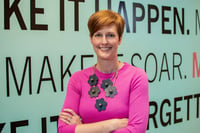
What type of challenge statements do you enjoy the most?
“I really enjoy statements like ‘Is there a material that does X or can withstand Y?’ and I have no idea what the answer is. I’m excited by the challenge involved in that type of research. In some cases, it’s a material that is used commonly in one industry, but is unknown in another, and so is readily available.
I’m also fond of hardtech projects that allow me to combine my materials expertise with my background in biological science or knowledge I’ve gained from personal hobbies.”
How do you apply your technical skills to Hardtech Development projects?
“Over the course of my career, I’ve seen a lot of different manufacturing methods, and so I have a really good foundational understanding of how many different types of things are made. This knowledge allows me to review mechanical designs and determine potential manufacturing issues pretty quickly, so I have the ability to offer lower risk solutions.
I also don’t assume that I have the right answer off the top of my head, so I ask a lot of questions in order to ensure any research fits each client’s use case, specifically. I’ve also seen the various ways materials can fail, and so I know the pitfalls to avoid with most common materials.”
What is one past success from an Hardtech Development or professional project that you are proud of?
“Someone in the mHUB community wanted to reduce weight and manufacturing cost for a device they were developing. Through a study of their prototype design and intended materials, I was able to provide recommendations that reduced the weight of the device by half, increased the overall product durability, and significantly reduced the cost of materials, while not adversely impacting the device’s appearance or functionality.”
Mike Rafferty
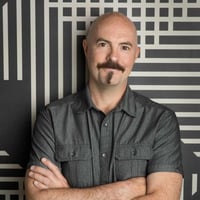
What type of challenge statements do you enjoy the most?
“I enjoy solving engineering puzzles – projects that require a careful touch to balance numerous design criteria, or projects that involve intricate or complex features. Past hardtech challenges have ranged from complex locking mechanisms to compact wrist-wearable electronics packages to light piping through apparently opaque surfaces.”
How do you apply your technical skills to Hardtech Development projects?
“I approach Hardtech Development projects in a structured manner to contain technical risk and focus the decision-making process for the client. Different technical skills predominate in each phase. But one technical skill is put to use in each and every phase: design for manufacturing (DFM).
As I apply the first pencil marks to a preliminary concept sketch I am thinking of how the components of the product can be manufactured. Sketches continue to be used throughout a project for quickly exploring design concepts.
3D CAD modeling and surfacing are used in creating a detailed digital design. A collection of tools and proven techniques are used during prototyping to evaluate a design and determine how it needs to be refined for production. A knowledge of many manufacturing processes is applied in final engineering to create a production data package that can be smoothly handed off to the manufacturer.”
What is one past success from an Hardtech Development or professional project that you are proud of?
“One of my favorite projects was leading a team of engineers and designers to develop a family of high-strength, all-plastic shopping carts. We took advantage of a number of tricky molding techniques to maximize strength and minimize resin usage, while staying true to the industrial design aesthetic. The carts have been on the market for several years and they are holding up incredibly well.”
Learn how to become a hardtech consultant or complete the form below to chat about your project needs with mHUB HardTech Development Services!
